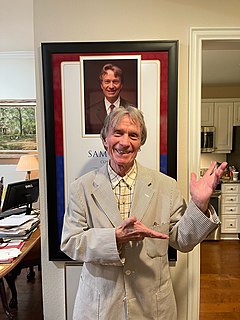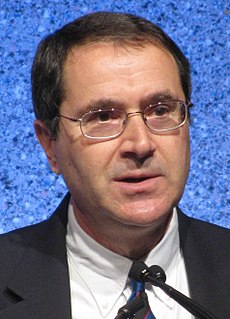A Quote by Nassim Nicholas Taleb
I disagree with the followers of Marx and those of Adam Smith: the reason free markets work is because they allow people to be lucky, thanks to aggressive trial and error, not by giving rewards or "incentives" for skill.
Related Quotes
I won't close down a business of subnormal profitability merely to add a fraction of a point to our corporate returns. I also feel it inappropriate for even an exceptionally profitable company to fund an operation once it appears to have unending losses in prospect. Adam Smith would disagree with my first proposition and Karl Marx would disagree with my second; the middle ground is the only position that leaves me comfortable.
From the equilibrium and spontaneous order of Adam Smith and his heirs, from invisible-handed markets and perfect competition, supply and demand, and rewards and punishments, I was pushed to theories of disequilibrium and disorder, and information and noise, as the keys to understanding economic progress.
If you go back to Adam Smith, you find the idea that markets and market forces operate as an invisible hand. This is the traditional laissez-faire market idea. But today, when economics is increasingly defined as the science of incentive, it becomes clear that the use of incentives involves quite active intervention, either by an economist or a policy maker, in using financial inducements to motivate behavior. In fact, so much though that we now almost take for granted that incentives are central to the subject of economics.
The most distinguished advocate and the most distinguished critic of modern captialism were in agreement on one essential point: the job makes the person. Adam Smith and Karl Marx both recognized the extent to which people's attitudes and behaviors take shape out of the experiences they have in their work.
. . I think the Adam Smith role was played in this cycle i.e. the late twentieth century collapse of socialism in which the idea of free-markets succeeded first, and then special events catalyzed a complete change of socio-political policy in countries around the world by Friedrich Hayek's The Road to Serfdom.
Storytelling is a very old human skill that gives us an evolutionary advantage. If you can tell young people how you kill an emu, acted out in song or dance, or that Uncle George was eaten by a croc over there, don't go there to swim, then those young people don't have to find out by trial and error.




































